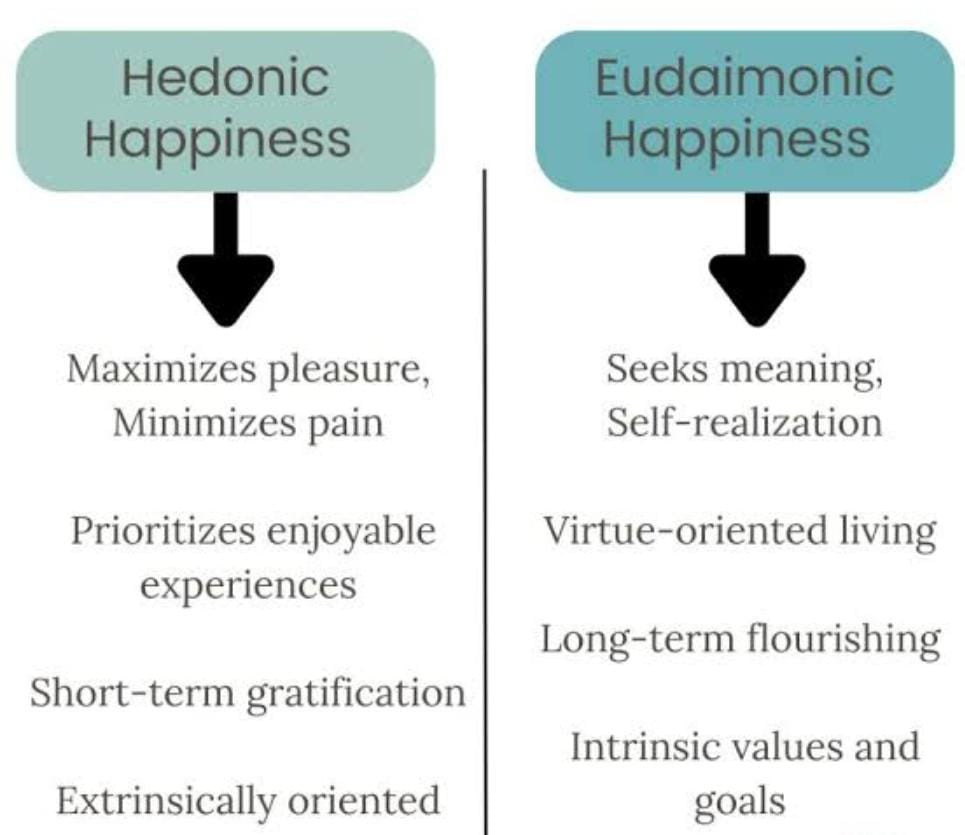21st September 2024
I recently came across this wonderful concept about the kinds of happiness.
Happiness can be defined in many ways. In psychology, there are two popular conceptions of happiness: hedonic and eudaimonic. Both kinds of happiness are achieved and contribute to overall well-being in different ways.
Hedonic Happiness is Achieved through pleasure, enjoyment, or satisfaction.
Eudaimonic Happiness is achieved through purpose, meaning, or authenticity.
The idea of hedonic happiness dates back to the 4th century B.C., when a Greek philosopher, Aristippus, taught that the ultimate goal in life should be to maximize pleasure.
Hedonic Happiness is associated with the maximization of short-term pleasure. It is the happiness you feel when you seek instant gratification.
Like hedonia, the concept of eudaimonia dates back to the 4th century B.C., when Aristotle first proposed it in his work, Nicomachean Ethics. According to Aristotle, to achieve happiness, one should live their life in accordance with their virtues. He claimed people constantly strive to meet their potential and be their best selves, leading to greater purpose & meaning.
Eudaimonic Happiness, is associated with a focus on long-term, value-oriented living. It is the happiness you feel when you delay gratification.
Maslow’s Hierarchy of Needs, which places self-actualization at the top of the pyramid, is based on a Eudaimonic view on happiness.
To be clear, both Hedonic and Eudaimonic Happiness have a necessary role in your life.
The exclusive pursuit of Hedonic Happiness will lead to a short-term pleasure cycle that may not lend itself well to long-term goals, progress, or growth.
The exclusive pursuit of Eudaimonic Happiness will lead to an ultra-long-term focus that may sacrifice all of the short-term pleasures and sweetness that provide daily bits of joy.
It may seem like the path to happiness is eudaimonia, but it’s not always practical to engage in activities that evoke eudaimonic happiness.
If you’re feeling sad or stressed, often treating yourself to a simple hedonic pleasure—like eating dessert or listening to a favorite song—can be a quick mood booster requiring a lot less effort than engaging in a eudaimonic activity.
Thus, both eudaimonia and hedonia have a role to play in one’s overall happiness and well-being.
The goal is always to find your personal balance point of Hedonic and Eudaimonic happiness.
Embrace certain short-term pleasures, but focus on building a life grounded in your long-term values and purpose.
However, this weekend, just be happy & stay blessed forever.

